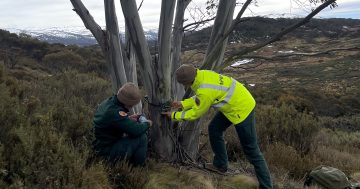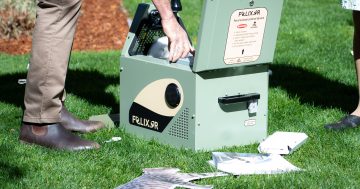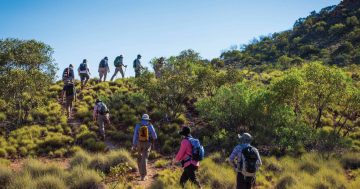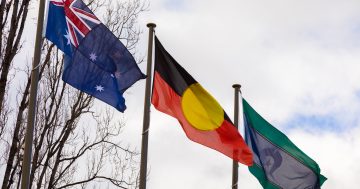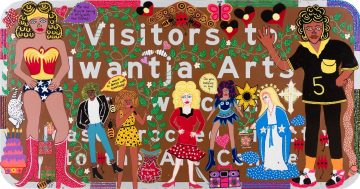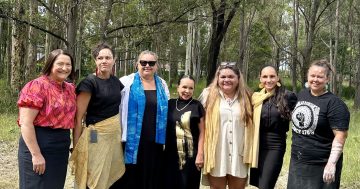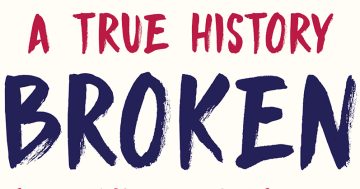Reviewed by Rama Gaind.
By Penny Olsen and Lynette Russell, NLA Publishing, $44.99.
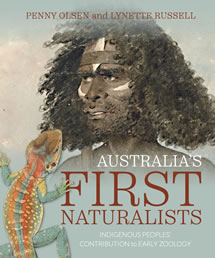 Authors Penny Olsen and Lynette Russell discuss a fascinating and largely untold aspect of Australia’s history. This book gathers together Aboriginal peoples’ contributions to early European explorers, collectors and illustrators to demonstrate the crucial role they played in early Australian zoology.
Authors Penny Olsen and Lynette Russell discuss a fascinating and largely untold aspect of Australia’s history. This book gathers together Aboriginal peoples’ contributions to early European explorers, collectors and illustrators to demonstrate the crucial role they played in early Australian zoology.
Aboriginal Australians gave Europeans their first views of iconic animals, such as the koala and superb lyrebird and helped unravel the mystery of egg-laying mammals: the echidna and platypus.
The names of early European naturalists John Gould, Joseph Banks and Carl Sofus Lumholtz are familiar to you, but not the Aboriginal Australians who led them to the discoveries that they’re now famous for.
Would Gregory Blaxland, William Lawson and William Wentworth have ever crossed the Blue Mountains without the help of the local Aboriginal people? The invaluable role of local guides in this event is rarely recognised.
Well into the 20th century, Indigenous people were engaged by collectors, illustrators and others with an interest in Australia’s animals. Yet this participation, if admitted at all, was generally, barely acknowledged. However, when documented, it was clearly significant.
The writings of the early European naturalists clearly describe the valuable knowledge of the Indigenous people of the habits of Australia’s bizarre (to a European) fauna.
Australia’s First Naturalists is invaluable for those wanting to learn more about our original inhabitants’ contribution to the collection, recognition and classification of Australia’s unique fauna. It heightens our appreciation of the previously unrecognised complex knowledge of Indigenous societies.
European naturalists, determined to discover and name any new animal they came across or got word of, used Indigenous knowledge to carry out their activities. However, this knowledge was hardly recorded, nor were many of the names of these Indigenous guides.
The book details the names of the few Aboriginal Australians mentioned in the diaries of these early explorers, including Natty and Gemmy who helped John Gould in the study of several birds including the lyrebird, boobook owl and several species of pigeon.
The book also details the pursuits of naturalist George Caley, who was assisted by a young Aboriginal boy by the name Moowattin, who helped him for several years classifying eucalypts, as well as collecting bird and mammal skins to send back to Banks.
All of this was done, without formal recognition. They were often paid with tobacco and bread.
“It was very exploitative in the early days when these Europeans came in, used Indigenous knowledge to find these fabulous animals and hardly said a word about Indigenous knowledge,” Penny says.
“Then they’d give these animals names that honoured distant European earls that they wanted to carry favour with, who had nothing to do with anything.”
Such is the case of Carl Sofus Lumholtz who was informed by the Warrgamay people about Bonngary, a peculiar tree mammal. After finding and describing Bonngary he then renamed the animal the Lumholtz’s tree-kangaroo.
That many of the behaviours and names of these animals were not recorded is a great loss to science. Penny notes, “sadly, a lot of the early naturalists either didn’t take Indigenous knowledge about behaviour seriously or it was just too hard to communicate. With many of the extinct animals that Aboriginal Australians lived alongside for thousands of years, we know hardly anything because of this. The opportunity wasn’t seized”.
Penny hopes that the book will go some way in giving recognition to Australia’s first naturalists. “I think we’re beginning to recognise the importance of Indigenous knowledge.”


